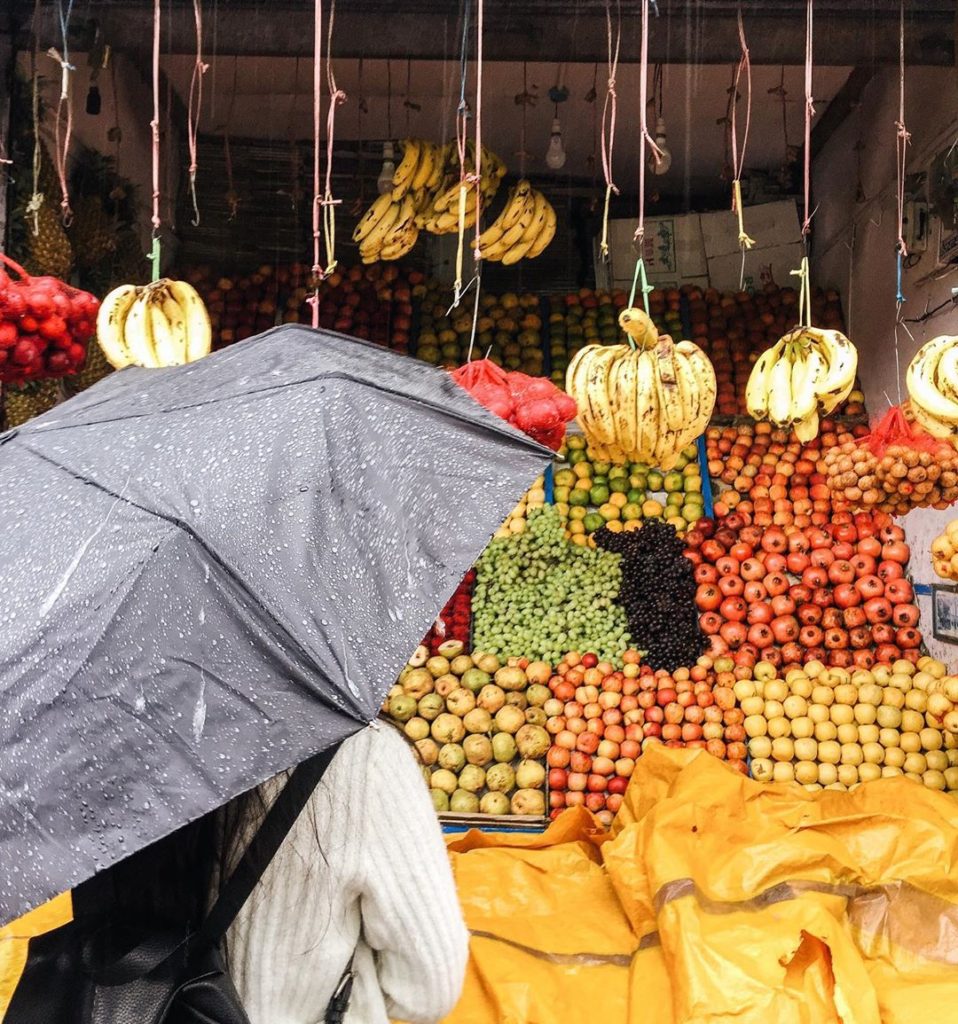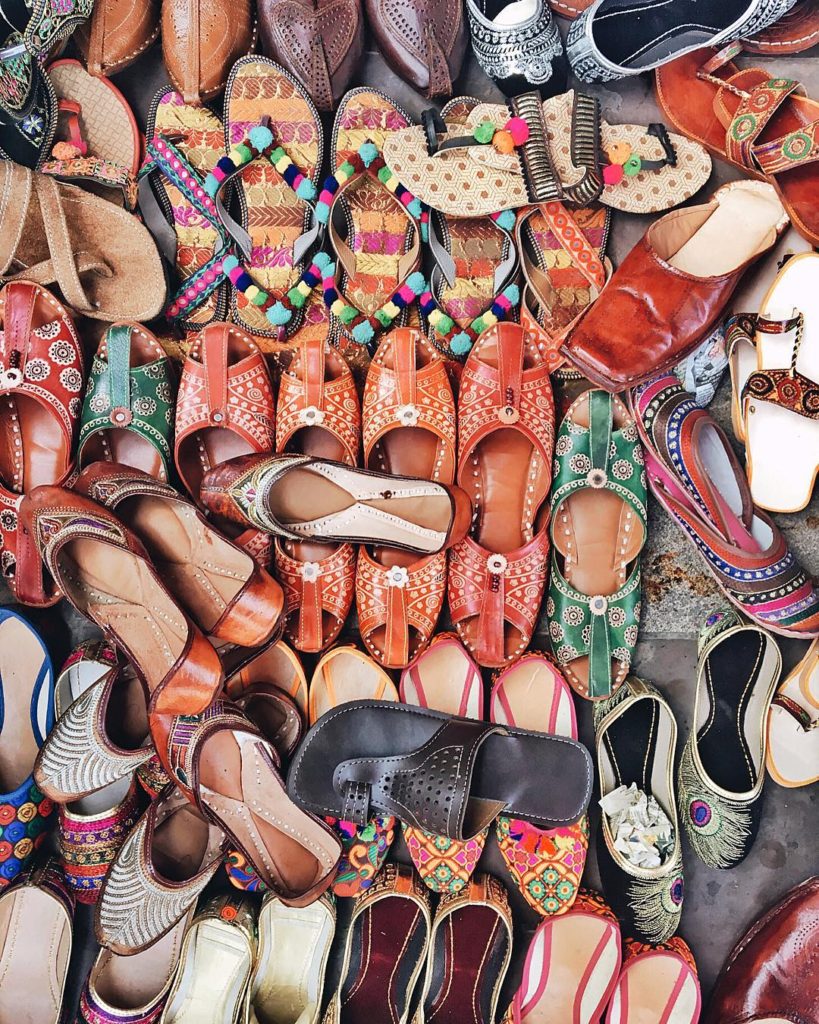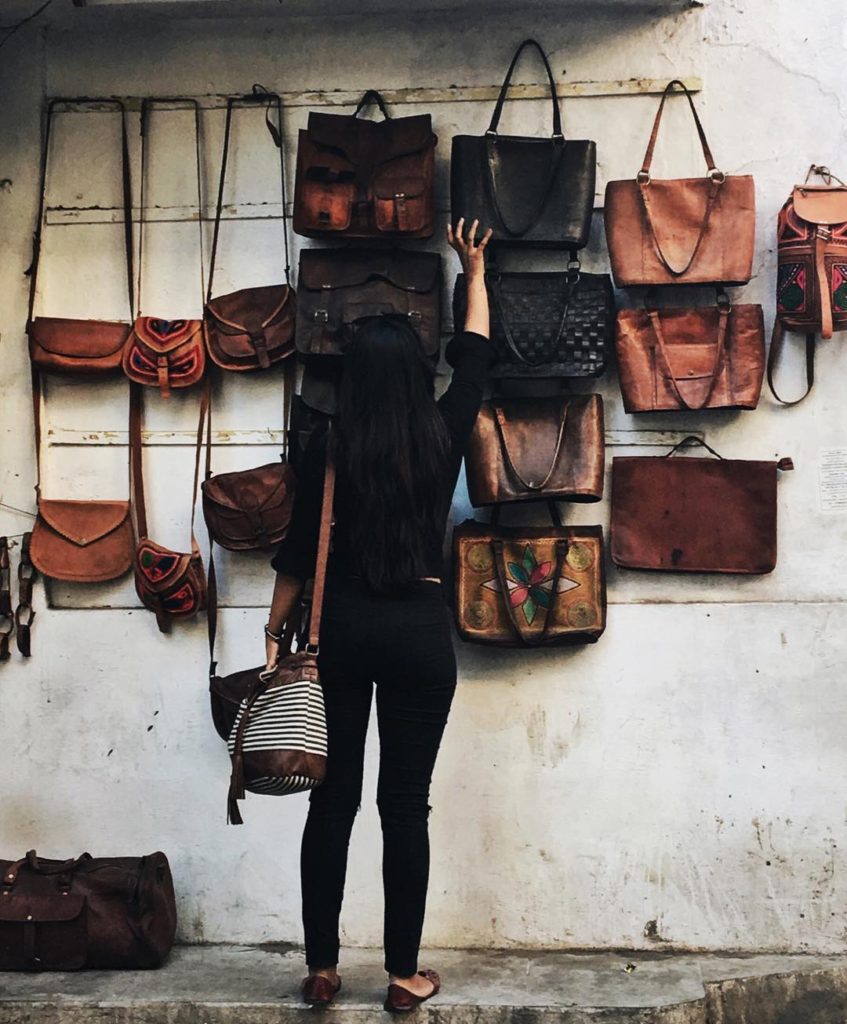◊ By Ananya Ghosh. Photographs courtesy of author.
Visit ORGANIC SHOP by Pure & Eco India
Times of upheaval always represent times of radical change. Many believe the Covid-19 global pandemic is an opportunity to reshape society and build a better future.
Some worry it could intensify existing injustices. While almost every industry has suffered and continues to be affected by it, the tourism sector is said to be the worst hit, with over 50 million jobs at risk. This multimillion-dollar industry, a growth engine for many economies, faces the biggest losses recounted in history.
However, since travel has become such an important part of our lives – no longer a far-fetched dream but, in fact, a necessary break from our mundane lives – I am particularly positive that it will get revive soon. I sincerely hope that once it does, we will see a positive shift in the mindset of today’s traveller.
With more travel comes bigger responsibility, and the sooner we understand this, the better it is for Earth and its inhabitants. Encouraging eco-tourism by means of minimum destruction and inculcating sustainable ways of living in our day-to-day lives will make a difference to the planet and our lives.
So, what makes one a responsible traveller? Here’s my take on it:
- COMBAT OVER-TOURISM
When streets are overcrowded, local sites are packed, fragile wilderness degraded, locals overpowered by tourists, and roads gridlocked—over-tourism is born. However, with travel becoming more affordable than ever, and with the Internet conveniently providing information, inspiration and ideas for travel experiences, there are many ways to fight this.
Now with the scare of Covid-19, give your own country the opportunity to surprise you. Travel local and help rebuild your economy.
Another possibility is to travel to lesser known countries and cities. It will help balance the number of tourists in popular destinations. The advantage is that you get to live unique experiences.
But if you’d like to visit a tourist hotspot, consider checking out regions in the concerned country or city that are not so famous. Go off-road to discover tucked away villages and towns—the locals would be happy to have you.
- CHOOSE SUSTAINABLE TOUR PROVIDERS
There are endless alternatives these days when it comes to tour operators. It is extremely important to do your research and choose eco-businesses that respect the environment, focus on sustainability and work with the community to provide locals with jobs. Better yet, choose a locally owned and operated company.
If you want to participate in watersports, ensure that the team doesn’t harm marine life in any way. On a wildlife tour, it’s imperative that you know your guide will arrange small groups, and will maintain a respectful distance from animals. Always understand that you are the visitor; it is your responsibility to not disturb someone else’s home.
- ECO-STAYS, ECO RESORTS & ECO LODGES
There’s a flood of eco-stays coming up, and the concept is becoming increasingly popular. Choose local guesthouses or small boutique hotels instead of staying at massive resorts. Not only would it be inexpensive, but you will also be supporting local families as opposed to corporate-owned accommodation. Your experience will also be richer and more authentic.
There are numerous eco-friendly lodges and resorts all over the world. Typically, these facilities will be located around nature (jungle, rainforest, mountains, riverside, farms, etc) and are working on a low-impact business format.
Their focus will be on sustainability of natural resources (water, energy, food), and if the locals are in favour of them, they’re probably doing some good work! That being said, always ask the right questions— is the staff local, is the food locally sourced, do they engage in recycling programmes, have they banned single-use plastic?
- SHOP LOCAL, EAT LOCAL
Seeking out the local artisans and nurturing their craft by purchasing locally made clothing, souvenirs, snacks and meals is the easiest way to contribute to the community. Try not to bargain too much, as this could be the only source of income for the locals of the place.
Always choose to eat at street-side cafes. My mother taught me that eating and drinking local produce will make your digestive system strong and immune. More often than not, the materials and produce will be authentic and fresher.

Don’t carry crisps and cans in your baggage. Simply head out and enjoy the local produce and cuisine on offer. In the image: A local fruit vendor in Ooty.
- REDUCE, REUSE & RECYCLE
There is always an alternative to unsustainable material. It’s as simple as carrying a reusable water bottle and refilling it at a café or restaurant, or carrying a cloth napkin instead of using tissue paper. I make sure I carry a metal spoon, folk and straw wherever I go, wash it and reuse it again.
Always travel light! Pack items that can be washed, dried and re-worn multiple times during your trip, or repeat your clothes.
Carrying your own towel will help save water instead of using a new towel at the hotel everyday. You don’t wash your towel everyday at home, so why should you do it on holiday? Also make sure you carry your own eco-friendly toiletries (bar shampoo and conditioner, bamboo toothbrush, bar soap for bath, etc). Watch your waste.
- SAVE WATER & ENERGY
Taking shorter showers, turning the tap off while shaving or brushing your teeth, and re-using your personal towels may seem trivial to you, but in the long run, more than a million travellers following this etiquette, will make a difference to the planet.
Don’t forget to switch off lights, fans, air-conditioning and the television when you leave your room. Consider leaving the ‘Do Not Disturb’ sign on the door to ensure housekeeping doesn’t clean your room every single day; it’s really not necessary!

Support the local artisans! In the image: Jutis galore in the Pink City.

Beautiful handcrafted leather bags made by local craftsmen in Udaipur, Rajasthan.
- RESPECT CULTURES & TRADITIONS
Some cultures have contrasting traditions from yours. Being a responsible traveller does not only mean choosing eco-friendly and sustainable travel but also, it means respecting cultures and customs, and obeying the rules, spoken and unspoken, of the locals.
Learning the golden words (hello, thank you, sorry, please, excuse me, etc.) in the native language is another way of showing gratitude for your experience.
Be a traveller, not a tourist. Immerse yourself in the world of the locals, get to know them and see life through their eyes. Engage in local art, music and food, and embrace the cultural differences. You will be surprised with the things you learn when you open your mind and heart to new perspectives.
- REDUCE YOUR CARBON FOOTPRINT
Reduce your carbon footprint by using minimal amount of resources. I am aware that flying is not the most positive aspect of ecotourism. However, if you must, choosing a direct flight will reduce carbon emissions. You could also carbon offset your flights by paying through programmes that ensure carbon neutrality (like by planting a set number of trees per flight, for instance).
On arrival, taking the local train, bus or other public transport is the greenest way to get around. Preferably, opt to cycle or walk. Explore the place in close proximity with the locals; maybe even strike up a few interesting conversations along the way. And if you must take a private taxi, sharing the ride would be the better alternative.
- LEAVE WITHOUT A TRACE!
Watching your waste is one thing but cleaning up behind you is as important, if not more. Whether you’re exploring a metropolis, town, countryside, rainforest or jungle, this mantra applies to every traveller.
Sticking to marked trails to avoid harming flora and fauna, carrying a cloth bag to collect any garbage you see on your way, and keeping your distance from wildlife will help keep the outdoors beautiful and green.
ABOUT THE AUTHOR
The author is Founder, Feet Run Wild, an eco-travel blog committed to encouraging the youth to travel responsibly. Since 2017, she has been travelling solo across Europe and India, while practising eco-friendly living. She supports eco-businesses and organisations that work towards the conservation of nature and biodiversity.
Ananya can be followed @feetrunwild.



I am a Singaporean Indian. I travelled in India for 3months pre covid.ln the South l am allowed to stay in any hotel.However in the North l am only allowed in certain hotels with marked up prices citing government rule.Why the double standard?